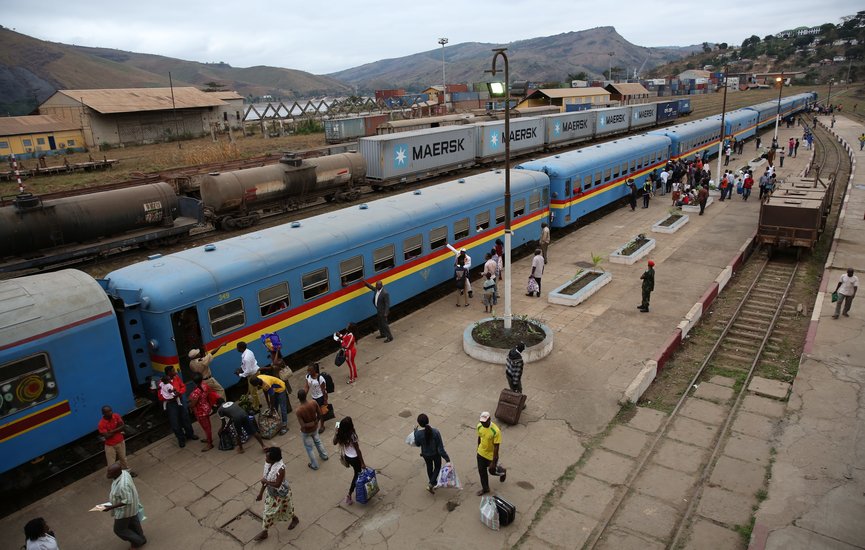KINSHASA – The Democratic Republic of Congo (DRC) officially reopened the Kinshasa–Matadi railway line on Friday, ending more than five years of closure and marking a key step in President Félix Tshisekedi’s plan to modernise the country’s transport infrastructure.
Deputy Prime Minister for Transport Jean-Pierre Bemba joined President Tshisekedi at the ceremony in Kinshasa, unveiling seven newly acquired passenger cars for the 366-kilometre line. Managed by state operator ONATRA and rehabilitated using revenues from the government’s Terrestrial Logistics Fee, the line is set to resume public service next week.
“This is not just about connecting Kinshasa and Matadi. It is about reviving the lifeline of our economy,” Bemba said, underscoring the route’s importance in linking the capital to the Atlantic port of Matadi, the DRC’s main gateway for imports and exports.
The Kinshasa–Matadi railway, closed since February 2020, has long been a crucial artery for transporting goods such as cement, fuel, and agricultural produce. Its revival comes as the country grapples with poor road networks, rising transport costs, and insecurity, which have left many eastern provinces cut off from major markets.
While the government focuses on western corridors like Kinshasa Matadi, pressure is mounting to expand reliable transport links in the east, where mining hubs such as Goma, Bukavu, and Bunia remain constrained by crumbling roads, collapsed bridges, and periodic rebel activity. The lack of safe and efficient transport has hindered both trade and humanitarian access from mineral-rich provinces such as North Kivu and Ituri.
Analysts say the railway’s rehabilitation signals renewed political commitment to infrastructure investment.
“Modern railways and roads are essential if Congo is to reduce reliance on costly air transport and open up isolated regions, especially in the east,” said a Kinshasa-based logistics expert.
Congo, Africa’s second-largest country, has one of the continent’s lowest road densities, according to the African Development Bank. The government has pledged to use revenues from new fees and partnerships with international lenders to rehabilitate both railway and road networks, aiming to unlock economic growth and strengthen national cohesion.
